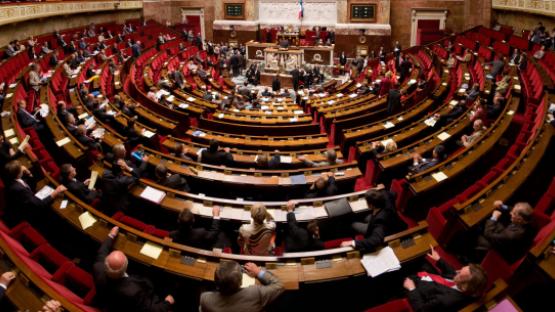France defies tide of accountability measures to expand surveillance powers

In the same week that the Advocate General of the European Court of Justice labelled the retention of electronic communications data throughout Europe as a “serious interference with the right to privacy”, the French National Assembly has codified into law a suite of invasive and unrestrained surveillance powers, allowing an expanded range of government bodies invasive access to citizens electronic communications data and content and threatening the privacy rights of the French people.
Pushing the limits of privacy
The French parliament used a military-spending bill to increase surveillance powers and enlarge the number of authorized agencies to conduct surveillance. The defence, interior, finance and budget ministries, in addition to the intelligence services, now have the power to gather a wide range of invasive information from digital communications, including real-time location data, and access the content of communications without having to first obtain a judicial warrant. Electronic surveillance can be conducted not only in pursuit of national security aims, but to protect national economic and scientific interests, as well as to investigate organized crime and terrorism offences.
Contrary to growing momentum
The adoption of the legislation flies in the face of the tide of criticism and accountability that has been building across many Western nations in recent weeks. It contrasts sharply with the opinion of the Advocate General in this week’s ECJ case on data retention, in which the practice of collecting and retaining electronic communications data was found to be a serious and disproportionate invasion of privacy. In his opinion, the Advocate General also emphasized that for any system of surveillance to be in compliance with human rights law, it must be accompanied by fundamental minimum guarantees and restrictions, including a precise description of the criminal activities capable of justifying access to data by competent national authorities, a requirement that authorization be granted by a judicial or independent authority, and a process to erase data after its usefulness has been exhausted and to notify the persons concerned, at least retrospectively, that the surveillance has taken place. None of these protections exist in the new French legislation.
Last week’s events in France also sit in sharp contrast to yesterday’s decision by United States District Judge Richard Leon in Klayman v Obama, the first domestic case arising out of the Snowden leaks pertaining to NSA mass surveillance. Judge Leon questioned the efficacy of mass surveillance and found that there was a substantial likelihood that the NSA’s mass data collection programme would be found to be in violation of the US constitution. He labeled the unrestrained collection of metadata – as sanctioned by the new French law – as “indiscriminate”, “arbitrary” and “almost-Orwellian.”
Indeed, the new legislative framework positions France as an outlier amongst its peers, many of whom are taking serious steps to review and strictly demarcate the State’s surveillance powers, particularly as exercised by the intelligence services. In addition to ongoing enquiries in the United States and the United Kingdom (though the latter is certainly not without its serious flaws), enquiries and parliamentary investigations into electronic surveillance, spurred by the Snowden leaks, have recently been announced in Australia, Germany, and Spain. The UN General Assembly is set to adopt a resolution tomorrow affirming the serious negative implications of surveillance, particularly mass surveillance, on the realization of the right to privacy worldwide. And it is not only governments taking action – last week both the major tech companies, and more than 500 renowned authors from across the globe, separately called for reform of the surveillance practices that have been embraced by our intelligence services. These called built on the campaign to establish International Principles on the Application of Human Rights to Communications Surveillance, a campaign led by Privacy International, along with EFF and Access, and more than 300 organisations across the world.
What now for France?
The developments in France directly conflict with the global trends that have been sparked by the outraged public reaction to the Snowden leaks – trends that show governments around the world are taking stock of their own surveillance practices and reevaluating whether State power has gotten out of control. France must reconsider this grave and retrogressive step towards an expanded surveillance State. The country’s Constitutional Council has an opportunity to review whether the law conforms with the Constitution prior to it being signed into law by Prime Minister Hollonde in two weeks time; the Prime Minister should ensure this is done immediately. Otherwise, France will seriously threaten the rights of the French people, and cement its complicity in global surveillance practices for years to come.